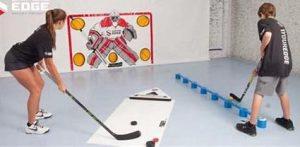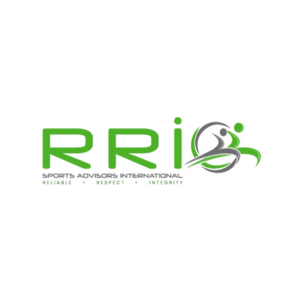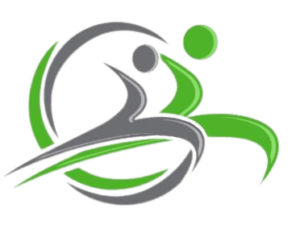Springtime is often significant in the hockey world. If you are fortunate, your team is still playing in a playoff series, and you are hopeful in pursuit of raising that championship trophy with your teammates.
For others it can be another significant season, the off season in hockey. The truth is, today, there is no such thing as an off season in hockey. You play the game during the hockey season, and you prepare for next season in the off season.

The key word for both seasons in the hockey world is development. You want to get better as a player and reap the benefits of your hard work. Scouts, General Managers and Coaches observe and monitor your progress during the playing season, and they may observe but mostly wait and see what your results are from the off season. You and everyone else is curious what the product on your development in both seasons will be. That result could be years down the road, but right now you should focus on today, tomorrow and the next day.
Can you be a 50% or 60% better player in the off season or during the playing season? Will you put in the time to make that significant contribution to your team and a step in the right direction for your future? Do you think it is a monumental task to get better 50% or 60% in 6 months? Can you really be that much better by next season, by mid season or by the playoffs? Maybe you can, but there is that element of doubt in your gut. That seems like a very large hill to climb.
What if you change your thought process a little, the results may be different. I think today’s generation of hockey players are visual learners. With everything in society today so visual oriented, how can they not be learning from everything they see and often emulate? I ask our clients; do you think if you apply yourself, you could get one percent better a day? Very often, almost in every case, the answer is yes, I can. It might mean just an additional amount of effort and commitment daily on ice and off that, when accumulated, can be a difference maker.
Here are some thoughts to consider. If applicable, you can apply them immediately and it will not take long, and results will be evident. Manage your time as much as possible. Teams often have practice slated for a specific time and extra ice is almost always available at the start and finish of practice. Rather than stretching and shooting pucks without a purpose, stretch before you step on the ice. When on the ice, use time for some work on your skating stride, balance, and edge work. The five minutes you spend will be five minutes more than you did last practice. Work on your first three steps from a stand still. Repetition is huge. Shooting pucks can be critical. The difference between a youth or junior practice and a college or NHL practice, you can tell by what you hear. Close your eyes and listen. The lower levels, everything is noise going off the glass or the end boards. At the NHL level, everything is on net. Passing and receiving the puck can be an art form. Quiet sounds. Watch a professional receive a pass, knocking it out of the air and handling it in stride. A pass on the tape is nice but not the only way to get it done.
Passing and receiving is a 50/50 venture by both parties responsible for their part of the equation for the passer and receiver.
The same practice scenarios at the lower-level, pucks are being slapped all over the rink and mishandled. At the NHL level just listen, it is almost musical. Decide if the extra work shooting and passing and receiving with purpose and precision accuracy is beneficial to your development.
Competitiveness is so important in your development and is totally in your control. Do everything with a purpose. Do everything at 100%. No shortcuts. If you do a drill or a play at practice at 80% then that is how you will play in a game. Make no excuses. Excuses are like opinions, everyone has one. Don’t believe for a second you have 110% to give because that is like a “Disney Movie”, it is make believe. You have 100% to give and nothing more. The coach expects 100%, so you should give him what he expects. Better yet, don’t shortchange yourself or your family, give 100% because that is how you “balance the books”. Pretty simple, and it is under your control.
Be physical as required and don’t jeopardize your team with selfishness with excess physicality. Be smart and effective. Hockey is a physical game and is not for the faint of heart. Engage, go to dirty areas, and put the team first. Safety is an important issue, so be aware. Be physical, be aware and be involved. The perimeter is not for safety. Sometimes you must be physical to gain the perimeter.
Know your position. Know your teammate’s position. Listen and learn positional play at practice. Educate yourself about positional play and the various types and benefits by learning off ice. The computer, the iPad, your iPhone can be wonderful teaching tools and can all contribute to your development with proper usage. Spending time in discussion with an older experienced veteran player can be valuable, if you just listen it is a learning tool that can be enjoyable for sure.
Learning is a never-ending process in all areas of life. Your hockey I.Q. does not have to develop by your attendance in a rink at a practice or a game. Remember, visual learning can be a powerful method for enhancement. The internet can give you access to emulate some of the greatest hockey players in the world, past and present. Learn about them as players and people. Their story may inspire you. Get creative and find ways to improve. You don’t have to have a sheet of ice in a rink to work on your game. Here is a thought. Old school, but try it, and see if fifteen minutes later you haven’t taken a step in the right direction to your enhanced development. Remember, 1% a day is 30% a month, which is significant in 3 months. You be the judge.
Take a golf ball and a hockey stick and stick handle for 15 minutes in front of the television watching anything. Don’t look at the golf ball, but feel it through your hockey stick. I am pretty sure you have not done that, watching television, in a long time if at all. The result is that you will be further in your development than you were before you started. I know, “Old School”, but it will work. Have fun! Get 1% better. Start today.
 David Cole
David Cole
CONTACT US
RRi GLOBAL AGENCY INC.
Call us @ 289-228-7344
E mail @ info@rrihockeyagency.com
DISCLAIMER
This article may contain advice, opinions and statements from the writer and the information providers. Views expressed in this article reflect the opinion of the author, David Cole of RRi Sports Advisors International dba the RRi Hockey Agency and not necessarily the views of the RRi Sports Advisors International dba the RRi Hockey Agency. The article does not represent or endorse the accuracy or reliability of any advice, opinion, statement, or other information provided in the article, or from any other member of RRi Sports Advisors International dba the RRi Hockey Agency.
CONFIDENTIAL
This document may contain confidential information that is legally protected. This information is intended only for the use of the individual(s) or entity named above. You are hereby notified that any disclosure, copying, distribution or action taken in reliance on the contents of these documents is strictly prohibited.

